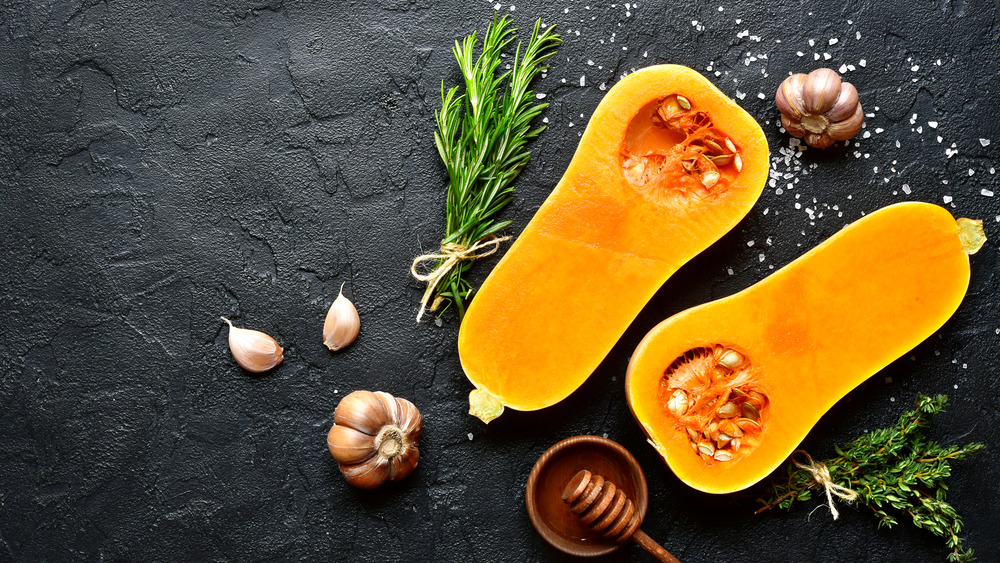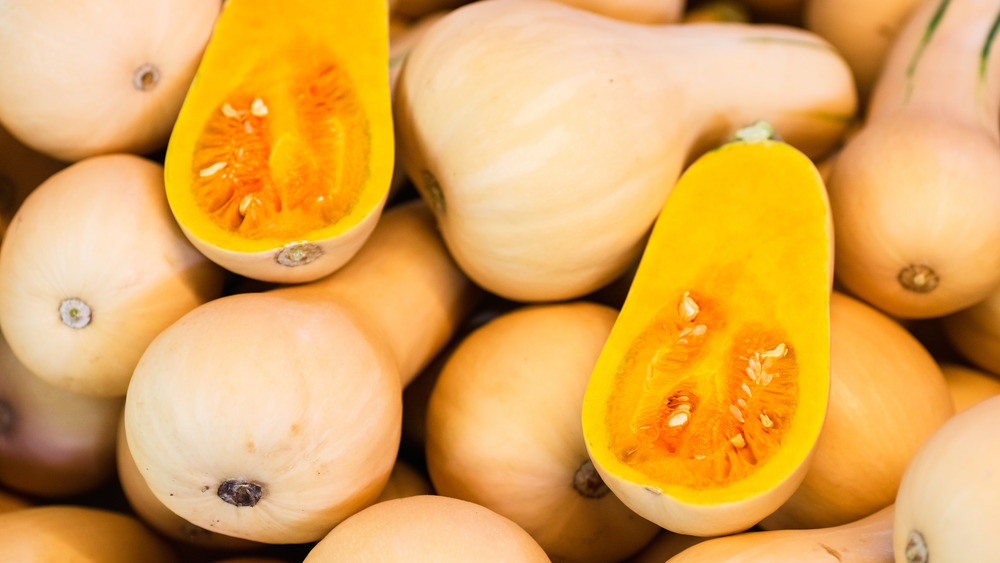You Should Start Eating More Butternut Squash. Here's Why
It can be hard to find variation in your weekly dinner menu. Trying to keep it healthy, light, and comforting all at once can be tough. Luckily, butternut squash is a food that can be all these things. Although technically a fruit, it's often posing as a vegetable, and its fleshy orange insides are packed with vitamins and minerals, according to Healthline. Here's why you should be eating more of it.
According to Shape, butternut squash is native to South and Central America. Its distinct shape fits perfectly with its fellow natives, the spaghetti squash, acorn squash, and perhaps its biggest competition, the pumpkin. Although they are all are commonly categorized as winter squash, they are actually grown during the summer months. They are mostly found in fall and winter recipes because they mature best while in the cold. Butternut squash has a mild flavor that is both sweet and savory. Though it can be eaten raw, the light orange fruit is synonymous with comforting soups and roasts.
Butternut squash is low in calories
Unlike many winter side dishes (we're looking at you buttered mashed potatoes), butternut squash is surprisingly low in calories. According to Healthline, one cup of cooked butternut squash has 82 calories, 22 grams of carbohydrates, and two grams of protein. It is also rich in vitamin A and C and contains important minerals such as magnesium and potassium.
Another necessary nutrient found in this odd-shaped fruit is fiber. Seven grams per cup to be exact. Shannon Leininger, registered dietitian and owner of LiveWell Nutrition tells Shape why Americans should be finding ways to add more fiber to their diet. "Fiber [adds] bulk to stool, which makes it easier to pass and keeps you regular," she explains. Leininger goes on to say that the amount of fiber found in one portion of butternut squash can help slow down the absorption of foods, which will in turn keep your blood sugar from spiking. This is a huge benefit for those who have diabetes and for staving off heart disease.
Inside its tough rind, butternut squash also holds more potassium than a banana, Shape states. Getting enough potassium is key to "prevent night blindness, dry eyes, and [potentially] macular degeneration," Leininger told Shape. So we now know that butternut squash is low in calories, contains fiber, promotes a healthy blood sugar level, maintains your vision, and can be heart healthy. Then we see no reason why this winter squash shouldn't be enjoyed year-round.


